Vietnam is fast becoming a hotspot for expats, particularly retirees looking to stretch their retirement savings while enjoying a life of adventure, warmth, and cultural richness.
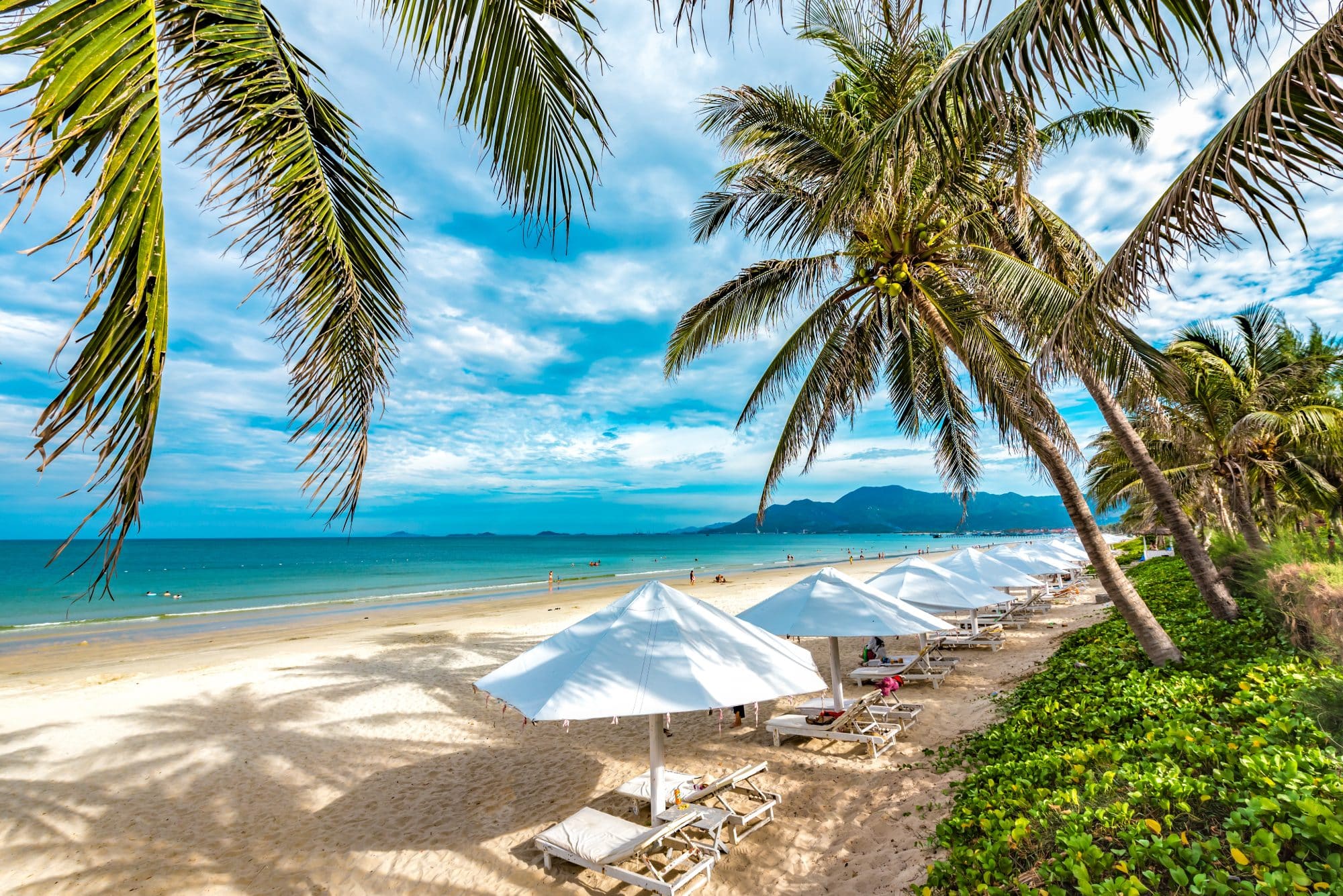
Secure Peace of Mind with Best-Value International Health Coverage
International Citizens Insurance provide free, no-obligation quotes from the leading international health insurance providers with plans tailored to meet your needs. Trusted by thousands of expats worldwide.
With its stunning landscapes, from the lush green rice terraces of the north to the pristine beaches in the south, Vietnam offers a great environment for anyone seeking a fresh start abroad.
Beyond its natural beauty, Vietnam’s cities, like Ho Chi Minh City and Hanoi, provide a mix of traditional culture and modern convenience.
What really sets Vietnam apart is its affordability. For American retirees, the prospect of living comfortably on a fixed income is a major draw. Whether it’s renting an apartment in a busy urban center or settling into a peaceful coastal town, the cost of living is significantly lower than in the U.S., making Vietnam an attractive option for those seeking a fulfilling yet affordable retirement.
Moreover, Vietnam’s warm and welcoming culture makes it easy for expats to integrate into local communities. The country’s rapid economic growth has led to a burgeoning expat scene, offering a sense of camaraderie and belonging for those moving from afar.
In this guide, we’ll explore everything you need to know about making the move to Vietnam, from the practicalities of visas and healthcare to the daily joys of life in this remarkable country. Whether you’re drawn by the promise of a tropical climate, the rich cultural experiences, or the chance to stretch your retirement savings further than you ever imagined, Vietnam might just be the perfect place for you to create a new life abroad.
Key takeaways
- Affordable Living: Vietnam offers a low cost of living with affordable housing, food, and healthcare compared to Western countries.
- Cultural Richness: The country boasts a blend of cultural heritage and captivating landscapes, providing a life-changing experience for expatriates.
- Employment Opportunities: There are various job opportunities, particularly for English speakers and digital nomads. Teaching English is especially popular among expats.
- Potential Challenges: Expats may face language barriers, variable healthcare quality, traffic congestion, and pollution in major cities.
- Visa Options: Multiple visa types are available, including tourist visas, business visas with work permits, temporary residency permits, and permanent residency options to accommodate different needs.
Pros and cons of living in Vietnam
Living in Vietnam offers a mix of advantages and challenges. Understanding these will help you make an informed decision about relocating.
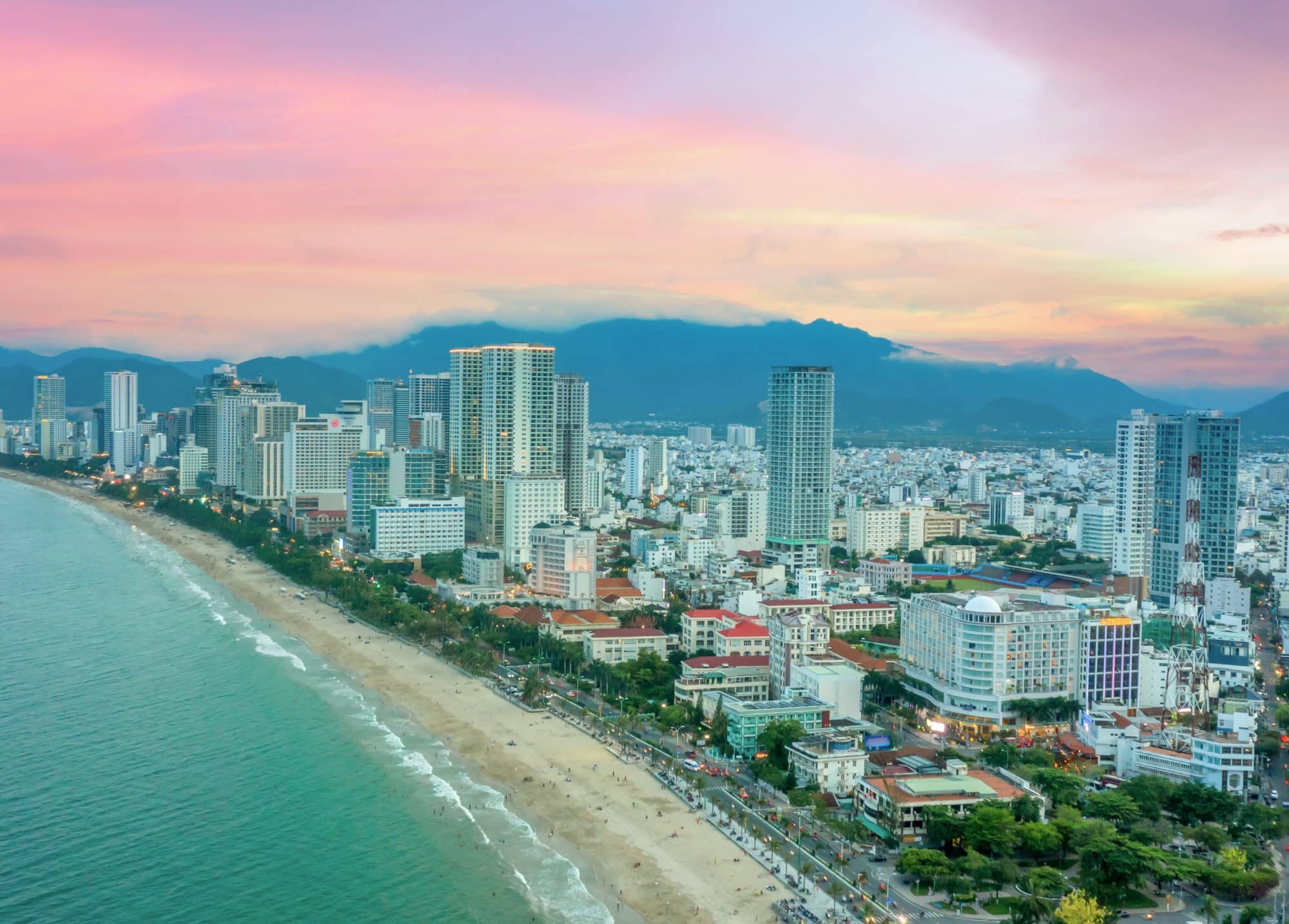
Pros of living in Vietnam
- Tropical Climate: A relatively moderate climate with no harsh winters, appealing if you prefer warm weather. Southern regions, such as Ho Chi Minh City, experience warm temperatures year-round.
- Affordable Cost of Living: Low living costs with monthly expenses of around $500. Essential services like transportation, food, and healthcare are more affordable compared to Western countries.
- Stunning Scenery: Beautiful landscapes, including forests, limestone cliffs, waterfalls, and beaches. Northern areas like Ha Long Bay offer picturesque panoramas that attract many tourists.
- Friendly Locals: Welcoming Vietnamese people are generally friendly to foreigners. Building friendships will enhance your overseas experience.
- Ease of Finding a Job: Various employment opportunities, especially for English speakers and digital nomads. Teaching English remains a highly sought-after job among expatriates.
- Accessibility from the U.S.: Though Vietnam may feel like a world away, it’s easier than ever to travel between the U.S. and Vietnam. Major cities like Ho Chi Minh City and Hanoi are well connected to international airports with direct flights to and from the U.S. The cost of flights is also reasonable, particularly when compared to travel costs to other Southeast Asian destinations.
Cons of living in Vietnam
- Language Barrier: Potential communication challenges since Vietnamese is the primary language spoken by locals. Although younger generations often speak some English, learning basic Vietnamese can be extremely beneficial.
- Healthcare Quality: You may experience inconsistent healthcare standards depending on your location within the country; urban centers typically have better facilities than rural areas.
- Traffic Congestion: Heavy traffic congestion in major cities like Hanoi and Ho Chi Minh City can significantly affect daily commutes.
- Pollution Levels: Be aware of high pollution levels, particularly air quality issues prevalent in densely populated cities due to rapid industrialization and vehicle emissions.
- Economic Disparities: The economic disparities between urban and rural areas, which can impact access to certain amenities or services depending on where you choose to reside.
The best places to live in Vietnam for expats
Vietnam offers a wide range of living environments to suit different preferences and lifestyles. Below are some of the best places for expats to live in Vietnam, each offering its own unique charm and advantages.
1. Ho Chi Minh City (Saigon)
If you crave the energy and excitement of a big city, Ho Chi Minh City, commonly known as Saigon, is a top choice. As Vietnam's largest and most cosmopolitan city, Saigon is a hub for expats from all over the world. Here, you’ll find everything from high-end shopping malls and modern skyscrapers to traditional markets and historic landmarks.

Why expats love it:
- Modern Amenities: Saigon is known for its modern infrastructure, international schools, hospitals, and upscale housing options. Expats can enjoy a Western lifestyle with easy access to familiar brands, restaurants, and services.
- Vibrant Expat Community: The city has a thriving expat community with numerous social clubs, networking events, and meet-ups. Districts 2 and 7 are popular areas for expats, offering international schools, gated communities, and a wide range of restaurants and cafes.
- Endless Entertainment: Saigon never sleeps. From rooftop bars and fine dining to local street food and traditional Vietnamese performances, there’s always something to do.
Ideal for: Those who want a dynamic, fast-paced lifestyle with all the conveniences of a major city.
2. Hanoi
Hanoi, Vietnam’s capital city, offers a more traditional and laid-back vibe compared to the hustle of Saigon. Known for its beautiful French colonial architecture, tree-lined boulevards, and rich history, Hanoi has a unique charm that blends the old with the new.
Why expats love it:
- Rich Cultural Heritage: Hanoi is steeped in history, with ancient temples, pagodas, and museums around every corner. The city’s Old Quarter is famous for its narrow streets and traditional shops, offering a glimpse into Vietnam’s past.
- Quieter Pace: Compared to Saigon, Hanoi offers a slower pace of life. The city is surrounded by lakes and parks, providing plenty of green space to relax and unwind.
- Art and Culture: Hanoi is a cultural hub, known for its art galleries, theaters, and cultural performances. Expats who enjoy the arts will find plenty to explore here.
Ideal for: Those who appreciate history, culture, and a slightly more relaxed urban experience.
3. Da Nang
Da Nang is a coastal city in central Vietnam. It offers a perfect balance between city life and natural beauty. It has rapidly developed into a modern urban center while maintaining its laid-back beach town charm.
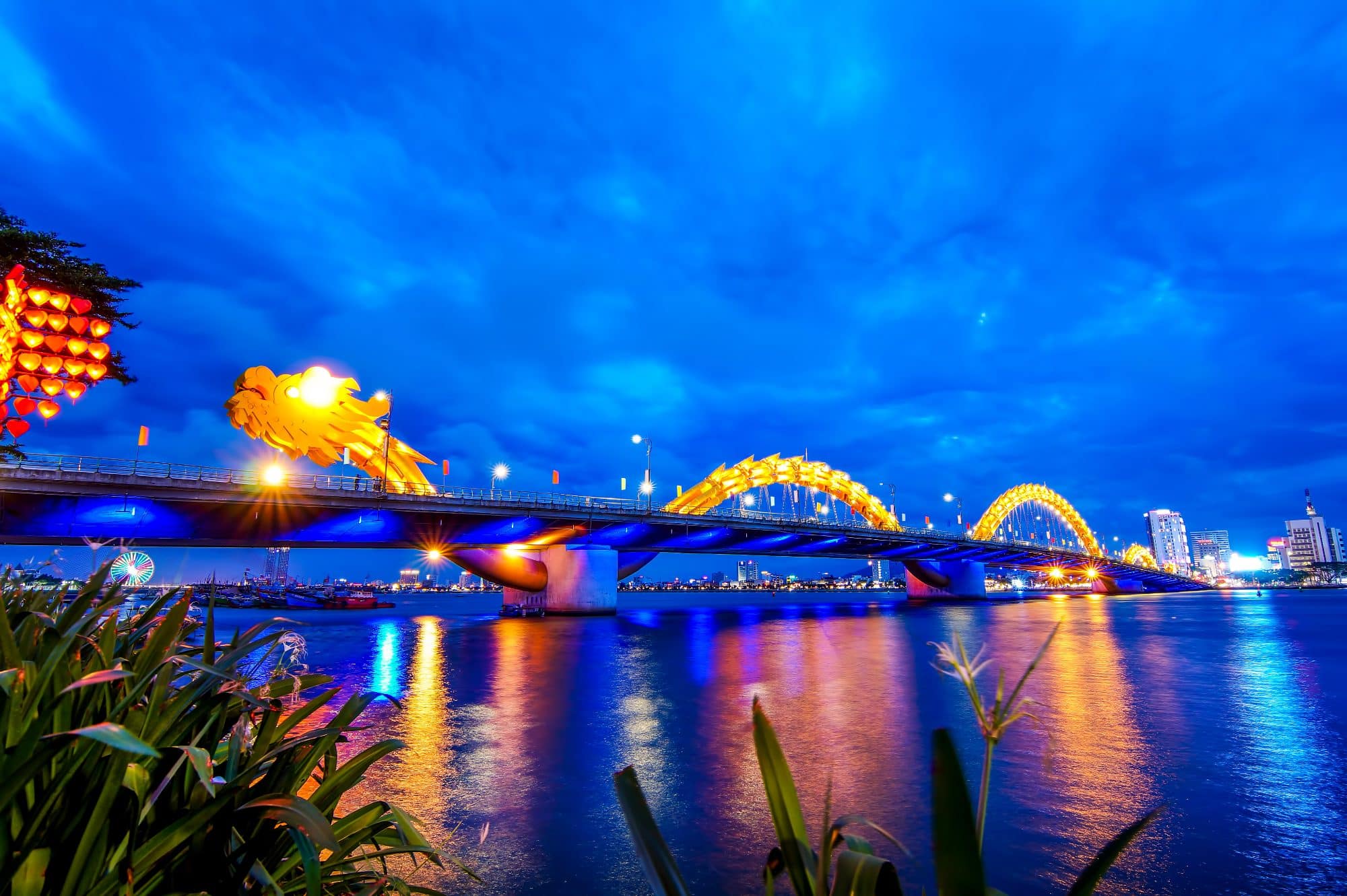
Why expats love it:
- Beautiful Beaches: Da Nang is famous for its stunning coastline, including My Khe Beach, which has been rated as one of the most beautiful beaches in the world. Expats enjoy a beachside lifestyle with modern amenities at their fingertips.
- Affordable Living: Da Nang offers a lower cost of living compared to Ho Chi Minh City and Hanoi, making it an attractive option for retirees. Housing is affordable, and the city has a growing expat community.
- Gateway to Central Vietnam: Da Nang’s location makes it a great base for exploring other parts of central Vietnam, including the historic town of Hoi An and the ancient imperial city of Hue.
Ideal for: Those who want a relaxed coastal lifestyle with access to modern conveniences.
4. Hoi An
Hoi An is a small, picturesque town just a short drive from Da Nang, famous for its well-preserved Ancient Town, a UNESCO World Heritage site. Hoi An’s charm lies in its peaceful atmosphere, beautiful lantern-lit streets, and proximity to the beach.
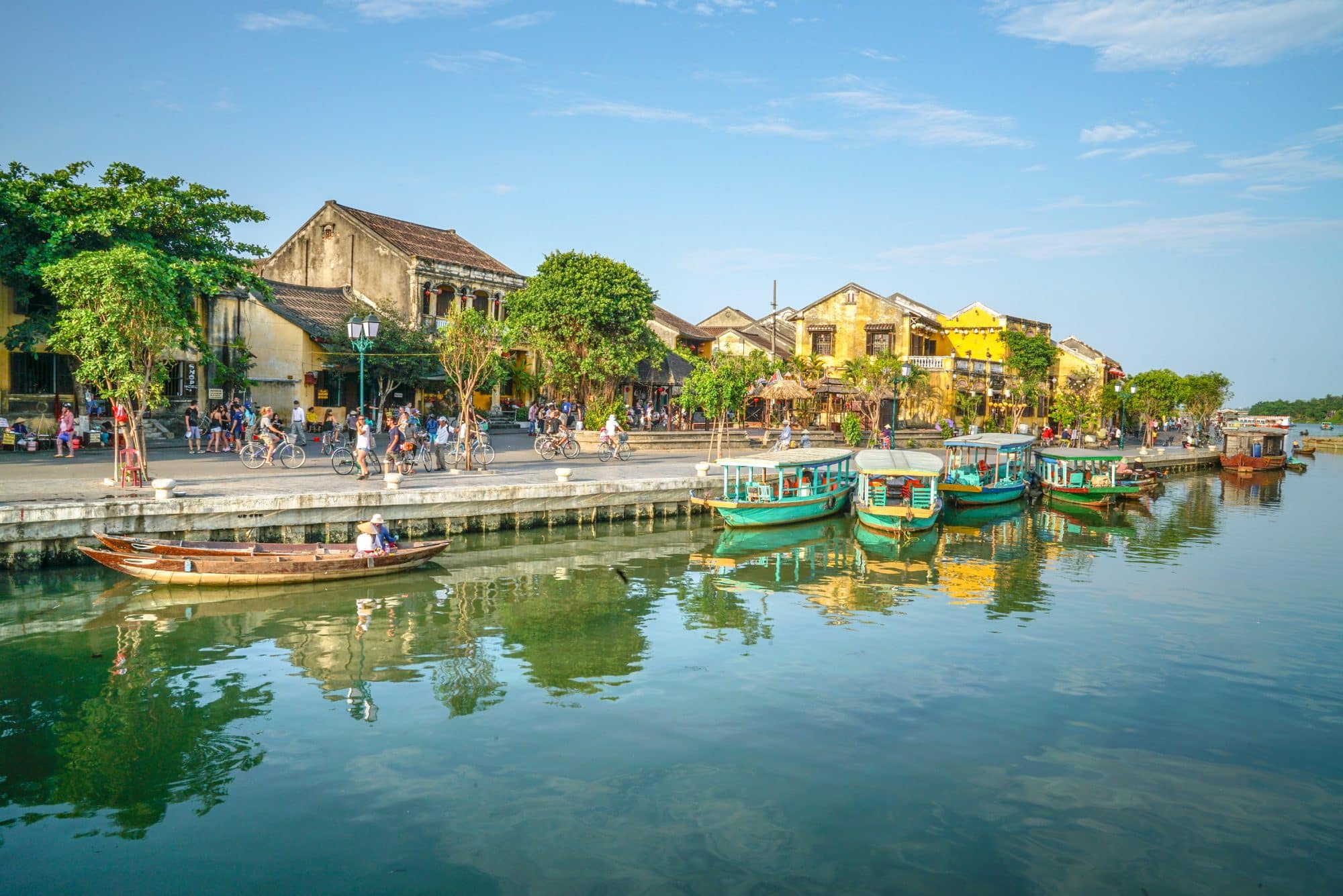
Why expats love it:
- Charming and Peaceful: Hoi An is known for its slow-paced and tranquil lifestyle. It’s a great place for those who want to escape the hustle and bustle of city life and enjoy a more relaxed, community-oriented environment.
- Creative and Artisanal Vibe: The town is filled with art galleries, craft shops, and tailor-made clothing stores. It’s a haven for creatives and those who appreciate artisanal crafts.
- Scenic Beauty: Hoi An is surrounded by rice paddies and rivers, and it’s close to An Bang Beach, offering a serene setting for those who love nature.
Ideal for: Retirees looking for a peaceful, small-town atmosphere with cultural richness and natural beauty.
5. Nha Trang
Nha Trang is another coastal city known for its beautiful beaches, clear waters, and vibrant expat community. It’s a popular destination for both tourists and expats who want to enjoy the sun and sea.
Why expats love it:
- Resort-Style Living: Nha Trang is home to some of Vietnam’s best resorts and beachfront properties. Expats can enjoy a luxurious lifestyle at an affordable price, with access to international restaurants, beach bars, and spas.
- Outdoor Activities: Nha Trang is a paradise for outdoor enthusiasts. From diving and snorkeling to island-hopping and hiking, there’s no shortage of activities for those who love the great outdoors.
- Expanding Expat Scene: Nha Trang has a growing expat community, with many social events and gatherings that make it easy to meet new people and build connections.
Ideal for: Those seeking a relaxed beach lifestyle with plenty of outdoor activities.
6. Dalat
If you prefer cooler weather and a more mountainous environment, Dalat might be the perfect place for you. Located in the Central Highlands, Dalat is known for its French colonial architecture, lush pine forests, and temperate climate.
Why expats love it:
- Cool Climate: Unlike the tropical heat of the coastal cities, Dalat has a mild, spring-like climate year-round, which many retirees find appealing.
- Scenic Countryside: Dalat’s surroundings are breathtaking, with lakes, waterfalls, and gardens offering a peaceful retreat. It’s a popular destination for those who enjoy nature and outdoor activities.
- Quiet and Relaxed: Dalat is a small, quiet city with a laid-back vibe. It’s perfect for retirees who want to escape the hustle of Vietnam’s bigger cities and enjoy a slower pace of life.
Ideal for: Those who prefer cooler climates and enjoy living in a serene, natural setting.
Find more information in our guide to the best places to live in Vietnam for expats.
The cost of living in Vietnam
Rent
Rent in Vietnam varies depending on the type of accommodation. A budget apartment generally costs $300-500 per month. A good standard will cost between $500-1500. Luxury apartments start from $1000 per month, depending on size and location. In Hanoi, a two-bedroom apartment in an upscale expat area averages around $850-2500 monthly.
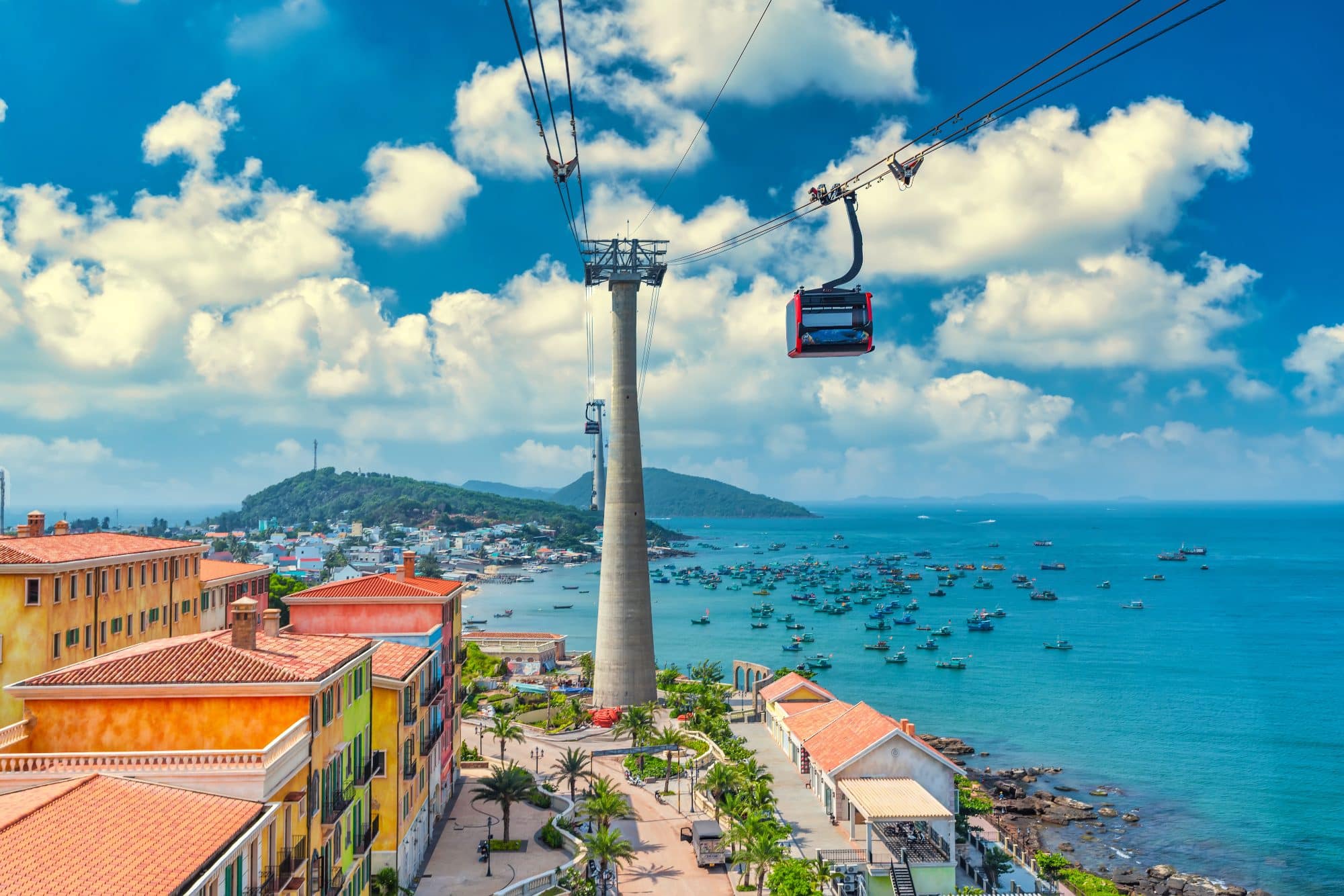
Bills
Monthly utility bills, including electricity, water, gas, and internet range from $45-60.
Food
Food expenses in Vietnam remain low. An average Vietnamese meal costs approximately $2 while a Western meal is about $8.50. A local beer typically costs around $1 per bottle and a cup of local Vietnamese coffee is priced at roughly $0.86.
Salary
Salaries for expatriates vary significantly by profession. The average teacher salary ranges from $1,200-2,500 per month while other expats earn about $8,600 monthly.
Monthly expenses
Monthly living expenses depend on your lifestyle:
- Frugal: Approximately $500.
- Normal: Between $700-800.
- Luxury: Ranges from $1,000 to 1,200.
Other expenses
Purchasing a used scooter or motorbike outright in Vietnam can cost between $350 and $1200.
Visa options
Vietnam’s visa regulations can be complex and tend to change frequently, so it’s essential to stay informed and seek the advice of local immigration experts to ensure you’re on the right track. Partnering with a trusted local agent can help simplify the visa process and keep you updated on any changes that might affect your residency status.
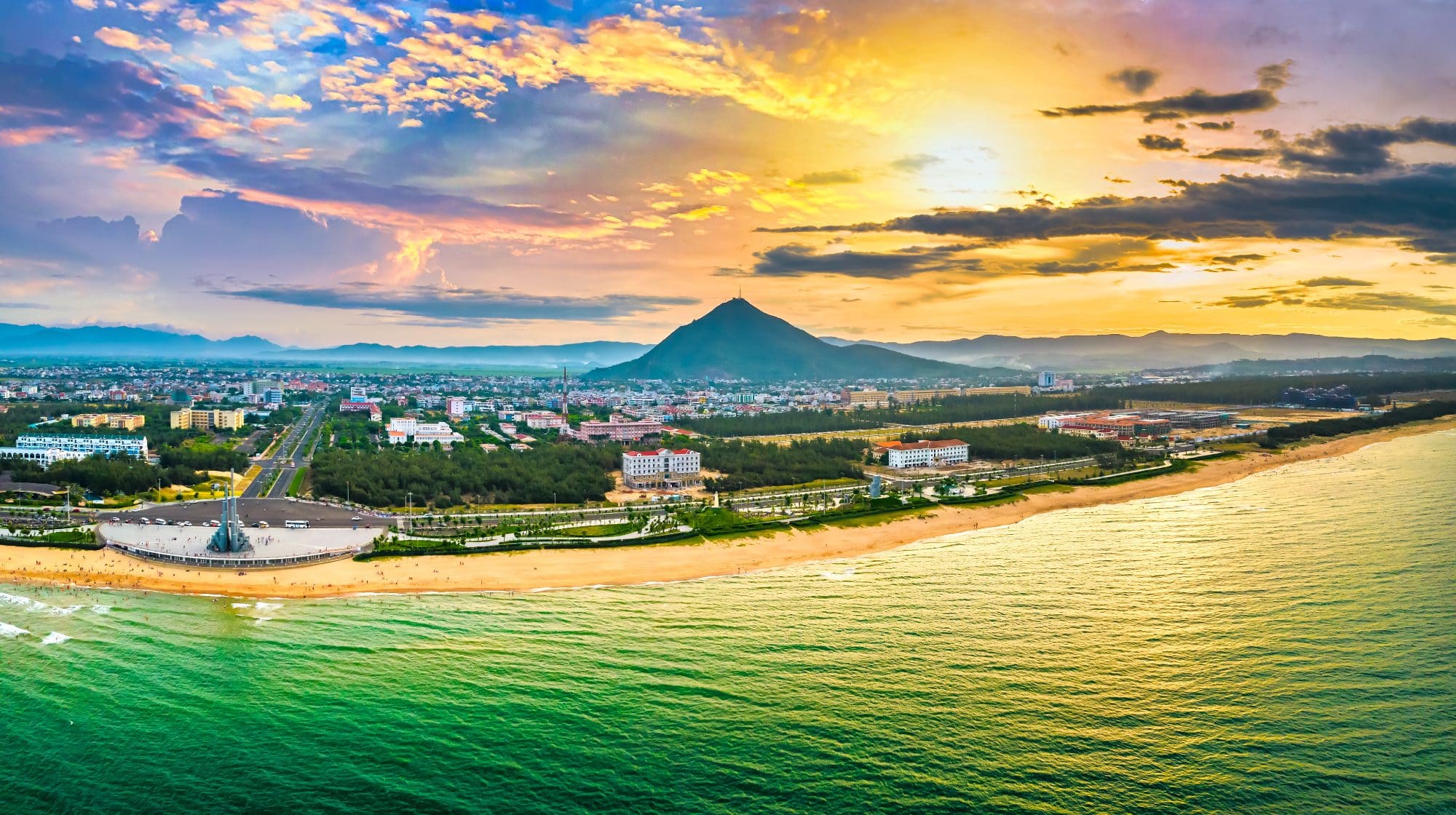
Vietnam doesn’t have a specific retirement visa, but there are several options that allow retirees to stay long-term. The most common visa for expats is the business visa (DN visa), which can be extended for a period of up to 12 months. While this visa isn’t strictly for retirees, many use it as a practical workaround to stay in the country long-term.
It's very much a case of keeping up to date with the current visa rules so you know which path to take when you apply.
Here are the currently available visa types:
Tourist visa
A tourist visa is ideal for short-term visits. You can obtain a single-entry or multiple-entry visa, valid for 1-3 months. Applications can be submitted online through Vietnam's e-visa portal or at Vietnamese embassies and consulates. An e-visa costs $25 USD, while other types might vary in price.
Business visa (DN visa) & work permit
A business visa combined with a work permit is essential for those intending to work in Vietnam. The business visa (DN) allows you to enter Vietnam for business activities but not employment—it’s valid for up to one year with multiple entries. To legally work, you'll also need a work permit, which requires:
- A job offer from a Vietnam-based company
- Relevant qualifications
- Health check
The application process includes submitting documents like your passport, photos, degree certifications, and health certificates.
Temporary Residency Permit
A temporary residency permit suits expatriates seeking longer stays without permanent residency status. Valid from 1-3 years, depending on your circumstances, it often follows after obtaining a business or investor visa (DT). Requirements include:
- Sponsorship by an employer or family member
- Proof of temporary residence registration
Documentation involves your passport, application form NA6/NA8, sponsorship letter, and relevant fees.
Permanent Residency Permit
Obtaining permanent residency permits is more complex but beneficial if you plan an extended stay without regular renewals. Eligibility criteria typically include:
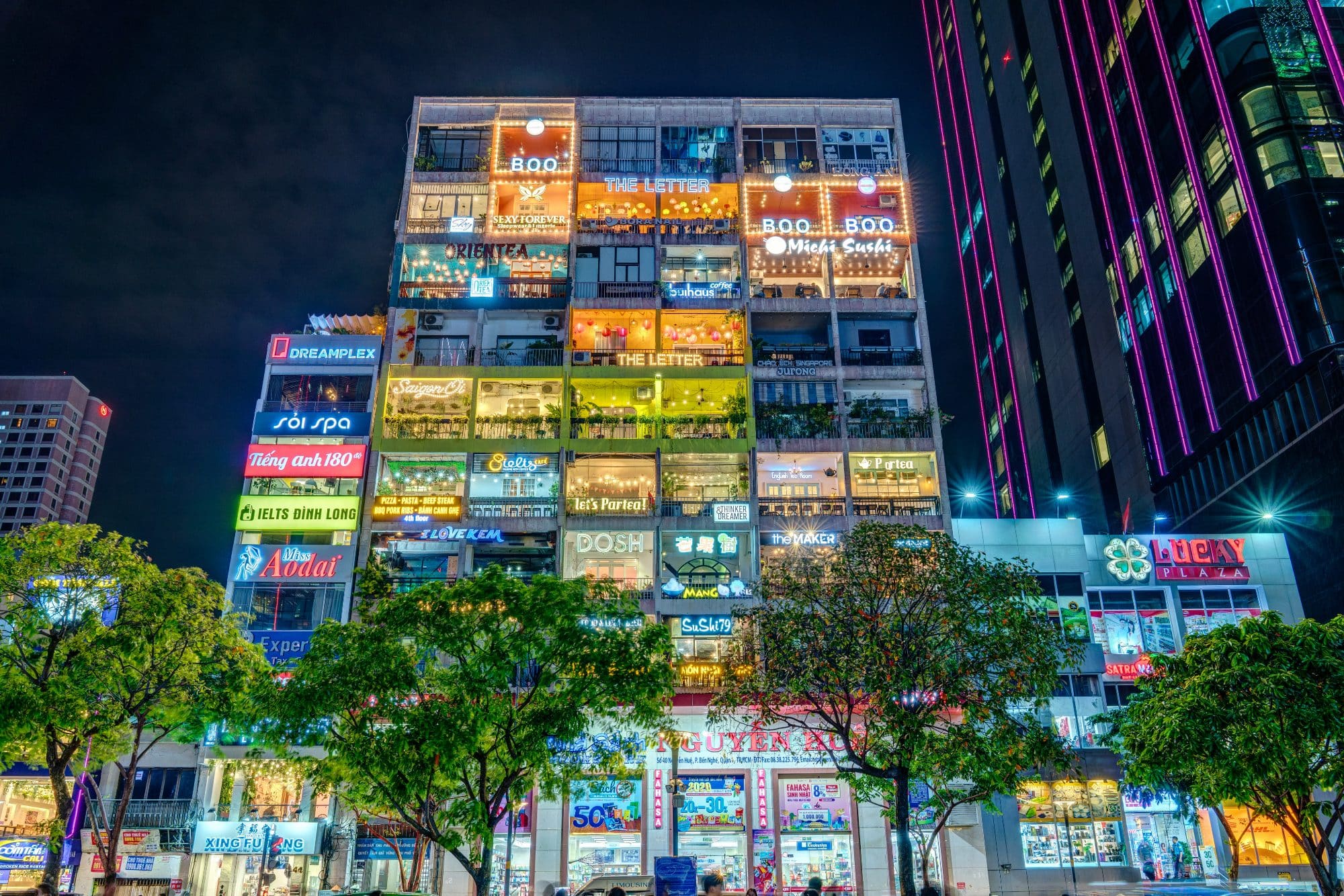
- Having stayed in Vietnam consecutively for at least three years on temporary residence cards
- Being sponsored by a Vietnamese citizen (spouse/child)
Necessary documentation includes proof of financial stability, criminal records, valid health insurance passports, and sponsorship paperwork.
Permanent residents enjoy similar rights as citizens except for voting privileges, ensuring stability while living in Vietnam.
These various visas facilitate smooth transitions whether you're visiting, working temporarily, staying long term, or settling permanently, enhancing the experience of relocating to this dynamic country.
Settling into life in Vietnam
Settling into life in Vietnam involves understanding local customs and accessing essential services. Comprehending the cultural landscape and healthcare system is pivotal to a smooth transition.
Culture and language
Vietnamese culture, rooted in Confucianism, values respect for authority and elders. Family plays a critical role, with decisions often made collectively. The dominant religion is Buddhism, emphasizing suffering and rebirth, which influences attitudes toward health and death. Knowing basic Vietnamese phrases can ease daily interactions, as English isn't widely spoken outside major cities like Hanoi or Ho Chi Minh City.
Healthcare
Healthcare is a critical consideration for retirees, and Vietnam offers a range of medical services that are both accessible and affordable. In major cities like Ho Chi Minh City and Hanoi, you'll find high-quality hospitals and clinics, some of which are internationally accredited and staffed by English-speaking doctors. Many of these facilities cater specifically to expats and offer a level of care comparable to what you’d find in the U.S. but at a fraction of the cost.
For routine care, visits to a local doctor or clinic are very affordable, often costing as little as $20 to $50 per consultation. Prescription medication is widely available and usually much cheaper than in the U.S. For more specialized care, many expats opt to visit one of the international hospitals, such as FV Hospital in Ho Chi Minh City or Vinmec International Hospital in Hanoi, where the quality of care is on par with Western standards.
However, health insurance is important to cover the cost of more serious medical issues or emergencies. Many expats choose international health insurance plans that provide comprehensive coverage, including the option to receive treatment in nearby countries like Thailand or Singapore if needed. It’s worth researching the different insurance options to find a plan that meets your specific needs, especially if you have any pre-existing health conditions.
Housing
Finding the right place to live is one of the first major steps in settling down. Fortunately, Vietnam offers a range of housing options to suit different tastes and budgets. In the larger cities, like Ho Chi Minh City, Hanoi, and Da Nang, you’ll find modern apartments and condominiums with Western-style amenities. These are popular among expats due to their convenience, security, and often prime locations within the city.
Renting is the most common option for expats, as buying property in Vietnam can be complex due to legal restrictions on foreign ownership. However, with the right legal guidance, it is possible to purchase property in Vietnam through long-term leases or by forming a joint venture with a local partner. Renting, on the other hand, is straightforward, and prices are very affordable compared to U.S. standards.
You may read about apartments being available for extremely low prices; occasionally, the odd bargain will come up. However, it's more realistic to plan around a budget between $550 to $1,500 per month if you want a good range of living options.
If you're seeking a quieter life, smaller cities and towns like Hoi An or Nha Trang offer a more relaxed pace of life. These areas are also popular with retirees due to their scenic beauty, smaller expat communities, and even lower costs of living. Whether you prefer the energy of a big city or the tranquillity of a coastal town, there’s a perfect spot in Vietnam waiting for you.
Property ownership
One of the main questions for retirees moving to Vietnam is whether they can buy property. The answer is yes – but with some limitations. Vietnam allows foreigners to own property under certain conditions, but it’s not as straightforward as it might be in the U.S. or other Western countries.
As a foreigner, you can purchase property in Vietnam, but only under a 50-year leasehold agreement. This lease can be renewed, but the process must go through government approval. Additionally, foreigners are limited to owning up to 30% of the units in a condominium building or up to 10% of the properties in a single ward (the smallest administrative unit in Vietnamese cities).
When it comes to land ownership, it’s important to note that all land in Vietnam is technically owned by the state. This means that while you can own buildings or houses on land, you don’t own the land itself – instead, you lease it from the government. This is a significant distinction for anyone considering a long-term investment in property in Vietnam.
Building a new life
Once the practicalities are sorted, the real adventure begins – building a new life in Vietnam. The country’s growing expat community makes it easy to connect with like-minded individuals who share your journey. In major cities, you’ll find expat groups, social clubs, and regular meet-ups that cater to all interests, from golf to gourmet dining. Joining these communities is a great way to make friends, share experiences, and get insider tips on making the most of your time in Vietnam.
Vietnamese people are known for their warmth and hospitality, making it easier for expats to integrate into the local culture. While English is spoken in many tourist areas, learning a few basic Vietnamese phrases can go a long way in helping you connect with locals and navigate daily life more smoothly. It’s a small effort that can make a big difference in how deeply you experience the culture.
Vietnam is a country where tradition and modernity coexist, and as an expat, you’ll have the chance to immerse yourself in both. Life in Vietnam is all about finding balance, from exploring ancient temples to enjoying a cup of coffee at a chic modern café.
Safety and security
Vietnam generally maintains a low crime rate compared to many Western countries but being vigilant ensures safety. Petty crimes such as pickpocketing occur in crowded areas; keeping valuables secure helps prevent theft. Traffic safety poses another concern due to congested roads; familiarizing yourself with local traffic laws enhances personal security while navigating urban environments.
Maintaining awareness of these aspects facilitates effective adaptation to Vietnamese society for professionals and retirees alike.
Transportation in Vietnam
Urban transportation
- Motorbikes: Motorbikes dominate urban transportation in Vietnam. Their convenience for short distances and availability for rent make them the preferred choice. Navigating through dense traffic is easier with motorbikes than larger vehicles.
- Public Transport: The public transport infrastructure remains underdeveloped, limiting options. Buses are the primary mode but often face issues like delays and overcrowding. Due to these constraints, reliance on private vehicles, especially motorbikes, is common.
- Electric Two-Wheelers (E2Ws): E2Ws are emerging as a sustainable transportation option. Their adoption has been slow due to inadequate charging infrastructure and supportive policies. However, they offer an eco-friendly alternative to traditional motorbikes.
- Trains: Vietnam's railway network primarily connects Hanoi and Ho Chi Minh City via a single-track system. Multiple classes of service are available, from economy to more luxurious options. Trains provide a scenic alternative for long-distance travel compared to buses or flights.
Job opportunities for expats
Living in Vietnam offers various job opportunities, especially in major cities like Hanoi and Ho Chi Minh City. Understanding the employment landscape can help you make informed decisions about relocating.
Work permits
Securing a work permit is essential if you're planning to work in Vietnam for over three months. You'll need to be in good health, qualified for your role, and free of any criminal record. The validity of a work permit extends up to two years but it's non-renewable. Ensuring you meet these criteria will streamline your move and employment process.
Job types
Several sectors actively recruit expatriates:
- Teaching English: Many language schools hire internationally, making this a common job choice.
- Finance: Roles such as accountants, auditors, and bankers are available.
- Technology: Positions in the tech industry offer numerous opportunities.
These jobs provide diverse options depending on your skills and career goals.
Taxes in Vietnam for expats
In Vietnam, your tax status depends on whether you are considered a resident or a non-resident. If you spend 183 days or more in Vietnam during a calendar year, you are classified as a resident for tax purposes. As a resident, you’ll be taxed on your worldwide income at progressive rates ranging from 5% to 35%. Non-residents, on the other hand, are only taxed on their Vietnam-sourced income, usually at a flat rate of 20%.
For retirees, the main concern is often whether pension income will be taxed. Currently, pension income from abroad is generally not subject to taxation in Vietnam, which is a significant benefit for those relying on Social Security benefits or other retirement income.
- Personal Income Tax (PIT): Expats are subject to PIT, with rates ranging from 5% to 35% depending on income level. While some expats manage to fly under the radar, it’s always better to be safe than sorry. Consulting a local tax expert can help you avoid unpleasant surprises.
- Double Taxation Agreements: Vietnam has signed double taxation agreements with over 80 countries, which may help you avoid being taxed twice on your income. Check if your home country is on the list and what exemptions may apply.
US citizens and taxation in Vietnam
It's important to note that while Vietnam has an extensive network of DTAs with many countries, the United States is not currently among them. This situation could change in the future if negotiations progress and an agreement is ratified by both countries.
Efforts to establish a DTA between Vietnam and the US:
An initial agreement between Vietnam and the US was negotiated for the Avoidance of Double Taxation and the Prevention of Fiscal Evasion with Respect to Taxes on Income (Double Tax Treaty or "DTT"). However, this agreement has not yet been ratified or put into effect.
The lack of a DTA between Vietnam and the US means that individuals and businesses operating between these two countries may face potential double taxation issues.
US citizens living abroad still need to file US taxes and meet certain obligations, like reporting foreign bank accounts. For more information, read our guide US Taxes For US Citizens Abroad: Filing Your US Tax Return As An Expat.
Language requirements
Fluency in Vietnamese isn't mandatory for many roles; however, learning basic Vietnamese can enhance your integration into local culture and broaden your job prospects. It's beneficial both professionally and personally.
Accommodation
Renting an apartment or house is the predominant living arrangement for expats. Major cities offer a wide range of housing options catering to different budgets and preferences.
Vietnamese food and groceries
Vietnam is renowned for its culinary diversity, making food an integral part of the living experience. Understanding the local food scene is essential when relocating to Vietnam.
Street food
Street food in Vietnam offers a unique and immersive dining experience. Popular dishes include bún chả (beef noodle soup), phở (chicken noodle soup), cơm (fried rice), bánh bao (steamed dumplings), and bánh mì (French-style baguette with pork, chicken, egg, and cheese). These meals not only reflect the rich culture but also provide affordable dining options.
| Dish | Description | Average Cost |
|---|---|---|
| Bún Chả | Beef noodle soup | 30,000 VND ($1.30/£0.98) |
| Phở | Chicken noodle soup | 30,000 VND ($1.30/£0.98) |
| Cơm | Fried rice | 30,000 VND ($1.30/£0.98) |
| Bánh Bao | Steamed dumplings | 30,000 VND ($1.30/£0.98) |
| Bánh Mì | French-style baguette with fillings | 20,000-35,000 VND ($0.87-$1.52/£0.66-£1) |
Eating on the street is a common practice in Vietnam where you can find some of the best local cuisine amidst bustling streets filled with small chairs and lively atmospheres.
Groceries, supermarkets, and markets
In Vietnam, you have several options for purchasing groceries:
- Local Markets: Offer fresh produce like fruits, vegetables, meat, and seafood, often at lower prices compared to supermarkets.
- Supermarkets: Provide a wide range of products, including imported goods, household items, packaged foods, and toiletries; popular chains include Co.opmart, Lotte Mart, and Big C VinMart.
- Specialty Stores: Focus on specific types of products such as organic foods, international cuisines, or health supplements catering to niche markets.
- Convenience Stores: Located throughout urban areas, these stores offer quick shopping solutions for basic necessities, snacks, beverages personal care items.
Weather and climate
Vietnam's climate exhibits considerable diversity, ranging from tropical regions in the south to temperate zones in the north. This geographic variability significantly influences daily life, impacting everything from daily attire to seasonal activities.
Temperature variations
Projected temperature increases in Vietnam align with global trends. By 2080–2099, temperatures are expected to rise between 1.0°C and 3.4°C compared to the 1986–2005 baseline. Understanding these projections helps you prepare for future climatic conditions.
Seasonal differences
Vietnam experiences distinct wet and dry seasons. Despite the season, rain is possible even during traditionally drier months. In northern regions like Hanoi, residents experience four seasons: spring, summer, fall, and winter. Winters can see temperatures drop into the low-to-mid-40s Fahrenheit.
Conversely, southern Vietnam enjoys a warm year-round climate with less pronounced seasonal shifts. The consistency of temperatures makes it an attractive destination if you prefer steady weather patterns.
Regional climate characteristics
Northern Region
The northern part of Vietnam has a temperate climate characterized by hot and humid summers paired with mild winters. This region's diverse weather necessitates versatile clothing options throughout the year.
Central Highlands
The Central Highlands offer mild temperatures reminiscent of perpetual springtime. With an average annual temperature of around 57°F (14°C), this area provides a comfortable environment ideal for those who favor moderate climates over extreme heat or cold conditions.
By understanding these regional climatic variations and their implications on day-to-day life, you can make informed decisions about your relocation plans within Vietnam based on personal preferences for weather and environmental comfort.
Making the move: practical considerations
Once you’ve made the decision to retire in Vietnam, it’s time to tackle the practical side of the move. From shipping your belongings and bringing pets to Vietnam to setting up your new home, the logistics can be overwhelming. However, with careful planning and a little bit of patience, you can transition smoothly into your new life. Here are some key practical considerations to keep in mind when making the move to Vietnam.
Shipping belongings
Moving your personal belongings from the U.S. to Vietnam requires some careful thought and planning. Shipping can be expensive, so it’s essential to decide what’s truly worth bringing with you and what can be purchased locally.
Vietnam has a wide range of home goods available, especially in major cities, so you might find that it’s more practical (and affordable) to purchase furniture, appliances, and other bulky items once you’ve settled in. However, if there are sentimental items, specialty goods, or specific electronics you can’t live without, shipping them from the U.S. is certainly possible.
Many expats choose to use international shipping companies that specialize in relocations to handle their move. These companies can help you navigate customs regulations and make the process as seamless as possible. Be prepared to deal with customs duties and potential delays, as Vietnam’s customs process can be slow and paperwork-heavy.
It’s a good idea to create a detailed inventory of everything you’re shipping and to ensure your goods are properly insured for the journey. Keep in mind that it might take several weeks or even months for your belongings to arrive, so plan to live out of a suitcase for a while when you first arrive.
For more information, read our guide on cost-effective international removals.
Bringing pets
For many retirees, their pets are part of the family, and leaving them behind isn’t an option. The good news is that bringing pets to Vietnam is relatively straightforward, but it does require some preparation.
Vietnam has specific requirements for pet imports, including up-to-date vaccinations, particularly for rabies. Your pet will need a health certificate from a licensed veterinarian that’s issued within 10 days of travel. There are also quarantine regulations in place, although in most cases, pets with proper documentation won’t be required to undergo quarantine upon arrival.
You’ll need to check with your airline about the regulations for traveling with pets, as some airlines have restrictions on the types and sizes of animals they transport. It’s also worth exploring the services of specialized pet relocation companies, which can handle all the logistics and ensure your pet’s journey is as comfortable and stress-free as possible.
Once in Vietnam, you’ll find that the country is relatively pet-friendly, especially in larger cities. Numerous veterinary clinics, including English-speaking vets, are located in expat hubs, so taking care of your pet’s health shouldn’t be an issue.
Conclusion
Living in Vietnam offers a unique blend of rich cultural experiences and practical benefits. Whether you're drawn by the affordable cost of living, the lively street food scene, or the diverse climate, there's something for everyone.
Understanding both the advantages and challenges can help you make an informed decision about relocating. With its welcoming communities and dynamic way of life, Vietnam stands out as a compelling destination for anyone considering a move abroad. Embrace the journey and discover what makes this country truly special.
Frequently Asked Questions
How much is a house in Vietnam in US dollars?
The cost of a house in Vietnam can vary widely based on location, size, and type. Typically, prices range from $50,000 to $200,000. However, the prices are significantly higher in major cities like Hanoi or Ho Chi Minh City.
Is $1,000 USD a good salary in Vietnam?
A salary of $1,000 USD is considered good in Vietnam. For unskilled laborers, average monthly earnings range between $170 to $430. Skilled professionals can earn upwards of $430 to more than $1,000 per month.
Can I collect Social Security and live in Vietnam?
Yes! If you earned Social Security benefits, you can receive payments while living abroad. Most foreign countries allow this, including Vietnam.
Why do Americans move to Vietnam?
Americans often move to Vietnam due to its low cost of living which allows them to comfortably cover their expenses with their income.
Is Vietnam a good place to live in?
Vietnam is indeed one of the best places to live in Asia thanks to its affordable living costs and rich culture. Health insurance coverage for expats is also recommended despite having good healthcare services available.
You might find useful:
- Vietnam's Best Cities For Expats
- 5 Best Countries To Retire In Southeast Asia
- The 13 Cheapest Countries To Retire To
- The Healthiest Climate That Can Help You Live Longer
Secure Peace of Mind with Best-Value International Health Coverage
International Citizens Insurance provide free, no-obligation quotes from the leading international health insurance providers with plans tailored to meet your needs. Trusted by thousands of expats worldwide.







